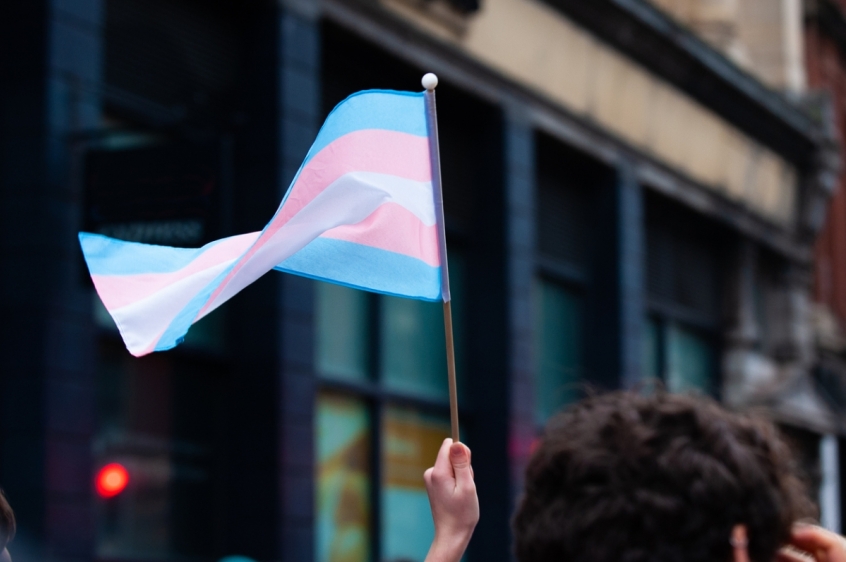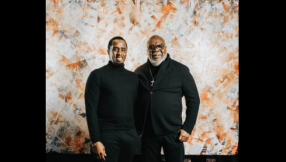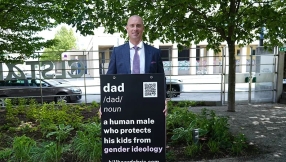
Transgender ideology is "deeply misogynistic" and Christians must work to protect the preciousness of women and femininity, a conference has heard.
Glenn Stanton, of Focus on the Family, told a gathering of Christian therapists in Poland that the LGBTQ+ movement had evolved to such an extent that it was now "anti-woman".
Furthermore, it is "cannibalising itself" due to the "internal logical incoherence of gender identity" and deep divisions over transgenderism that have led to a split between the LGBs and the TQs.
"And women are the victims here," Stanton said.
"Trans politics is the new patriarchy. It is men telling women how it's going to be. It's the new misogyny. And in fact it's misogyny on steroids because it erases the feminine in any meaningful sense."
He continued, "When an embodied male goes into a female space, whether it's a sports gym or a lesbian bar, everything changes for women and that's because femininity is a very special human quality that must be protected and cared for and cherished and nurtured."
Stanton expressed disbelief at the level of violent threats openly directed at feminists and women who dare to challenge transgender ideology or harmful policies like the placement of 'trans women' in female prisons. Men claiming to be women just so that they can be placed in female prisons are "gaming the system", he said.
"They're men and we just need to say that ... And the women don't get to complain about it ... It's the worst kind of patriarchy," he said, noting that women who dare to speak out can expect to be cancelled or subjected to threats of death or sexual violence by trans activists.
"Classic liberalism used to be: 'dad, I disagree with what you say but I will defend to my death your right to say it.' That's gone now," he said, adding that his own experience of being cancelled was "incredibly painful".
He said it was hard to predict how things will develop in the next few years but added that it was going to be "hard to put the genie back in the bottle and go back to the way things were", and that in the meantime there would be many "hurt" people.
At a time when the "rules are constantly changing", he said that Christians must speak the truth and resist pressure to use language that goes against their beliefs, while also providing support to people who are genuinely struggling with gender dysphoria.
"We have moved from gender dysphoric people who are really suffering and really need compassion, to a situation where people are pretending. And that cannot sustain itself," he said.
Stanton was speaking on the final day of a conference organised by the International Foundation for Therapeutic and Counselling Choice (IFTCC) bringing together over 140 therapists from 28 countries to discuss how they can support people who want help to leave behind unwanted same-sex attraction or gender dysphoria.
Speaking earlier in the conference, Stanton said that a "unisex culture" was being imposed on society "by force" and that transgenderism and gender fluidity now enjoyed the status of a "religious dogma that is far more fundamentalist than any religious conservative fundamentalist that I know".
"How did we get here? We got here by separating sex and gender" he said, adding that the solution now must be "reconnecting sexuality and gender back together".
Addressing the pressure on people to adopt preferred pronouns at work and elsewhere, he said, "We must refuse at every turn to play along with that."
Other speakers addressed challenges to civil liberties resulting from gender self-identification laws and bans on so-called conversion therapy.
Felix Boellmann, of the Alliance Defending Freedom International, said he was concerned about gender self-identification laws coming into force in Germany next month. Under the German law, there is no age limit to changing legal gender, but under-14s must receive parental consent. However, if parental consent is withheld, the court has the power to step in and override the parents' decision if it is deemed to be in the best interests of the child.
Boellmann said it used to be presumed that parents knew what was in the best interests of their child and that the burden of proof was on others claiming to know better.
"With this law, that gets twisted. The burden of proof is no longer on the other side. It is the court who shall by definition have a say on whether a change is not against the best interests of the child. It's a very low threshold compared to what we originally had," he said.
Boellmann shared a "heartbreaking" case he is working on in Switzerland where parents are fighting the removal of their child from their care after refusing to affirm their gender transition. The cost of the legal battle has left them "facing financial ruin and there is no end in sight".
He said that a common trend around gender transition laws is the young age limits - in Switzerland the age limit of gender self-identification is 16.
"No one is exerting caution and the parents are prevented from stepping in," he said.
"It cannot be that we do not allow children to get married or to drink alcohol or to smoke at a certain age but they can go ahead and continue on that trajectory [of changing gender]."
Ole Gramstad Jensen, a lawyer from Norway, spoke of the challenges arising from the "wide" definition of so-called conversion therapy under his country's ban, which includes prayer.
"I find it astounding that a child who is 16 years old or older can seek out any sexual avenue but not pursue heterosexuality. And when it comes to gender and gender identity, it gets even worse. They can get help to change their bodies but not their minds [despite] the latter being far less invasive," he said.
Dr Paul Sullins, a researcher in same-sex parenting and child development, told the conference that a liberal academic bias has led to a "double standard" and "two-tier system" in academic research and publishing, and "the censorship of ideas that they just don't like".
He likened academic publishing to a "religious cult" in which only "sanitised, pre-approved ideas can be discussed", while evidence that challenges the dominant narrative is "suppressed even if it is true".
Dr Sullins said that conservative academics face a "gauntlet of obstacles to publication" and that there is a "blatant" and "huge double standard" towards pro-life research especially. If a study does make it to publication, pressure is immediately put on the publishers to retract it.
"Studies that are retracted tend to be very strong [in their data]. Why? Because if they were weaker, someone could write a refutation, it wouldn't be that hard to do," he said.
"But if they can't refute it, then they'll try to retract it. They also won't cite it and they'll bury it as much as they can."
Dr Sullins blamed the censorship on the rise of "giant science conglomerates" that are "susceptible to activist pressure" and are more concerned about "reputation" and the "bottom line".
British human rights barrister, Paul Diamond, who has spent years helping Christians fight religious freedom cases in the UK, said that diversity and inclusion terms are being used to "silence" traditionalist viewpoints, and that hate crime and hate speech laws boil down to "I don't like what you're saying, I disagree with what you're saying, and I'm not going to allow you to say it".













